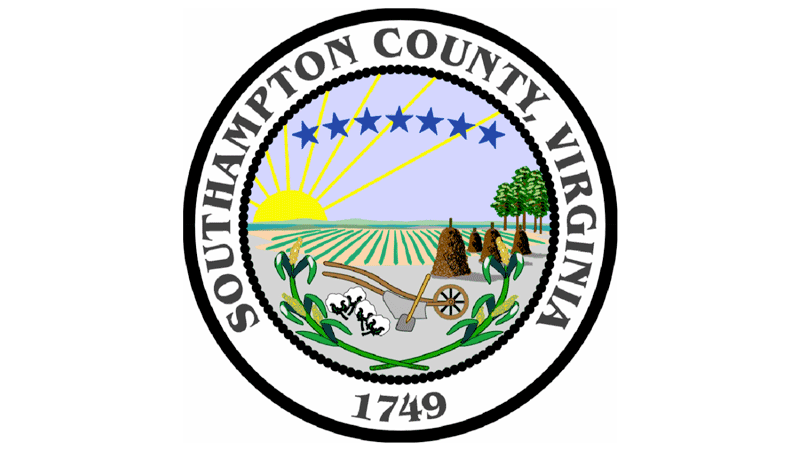Sound of progress
Published 10:52 pm Friday, July 15, 2011
Editor’s Note: This is the fourth in a six-part series that focuses on the growing wood pellet industry in northeastern North Carolina and southeastern Virginia.
By Cal Bryant/Staff Writer
cal.bryant@roanoke-chowannewsherald.com
AHOSKIE, N.C.—The sound of progress can be heard here at the intersection of U.S. 13 and N.C. 561.
Work crews are busy on a $52 million investment by Enviva Biomass, a Richmond-based firm constructing a wood pellet mill at the site of the old Georgia-Pacific plant.
Once up and running later this year, Enviva will add 60-plus new jobs. Meanwhile, the ripple effect will result in an upswing in other lines of work, namely logging operations and trucking firms. The end result will prove to be a big shot in the arm financially for an area blessed with a highly skilled labor force but a lack of overall job opportunities.
“We’ve been extremely pleased with the quality of the workforce here and we’ve tapped into that talent pool,” said Enviva’s Glenn Gray who is overseeing construction of the Ahoskie mill. “It was very unfortunate that IP (International Paper) closed its operation in Franklin, Va., last year and we’ve just recently learned of Georgia-Pacific’s decision to close its plant over in Skippers, Va. However, we find ourselves in a position to offer jobs to those individuals.”
Gray was also appreciative of the assistance in finding and training workers offered by Roanoke-Chowan Community College.
“We’ve worked with them in putting together a list of candidates that may be added to our workforce,” he said. “They’ve also assisted us in the training of our operators and technicians. Having a community college in an area we locate is a blessing. They are the support mechanism we and other businesses need.”
Gray said the construction process in Ahoskie is right on schedule.
“I think we’ve set some sort of record here because we’ve only lost three days to rain,” he noted. “Normally when we begin the construction process at a new mill, it can be as dry as the Sahara Desert before we get there and then the monsoon season sets in just as soon as we dig the first hole.”
According to Enviva’s schedule, the Ahoskie mill will be operational by the fourth quarter of this year.
“About three to four weeks after we start-up, we’ll be running seven days a week,” Gray stated. “Just like the start up of any new operation, it will take a short period of time before reaching maximum output. We expect that to occur early in 2012.”
Gray said the Ahoskie mill will employ 61 to 62 workers. Those jobs will entail logistics control, mobile equipment operators (front end loaders, knuckle boom loaders) and operators for the chipping machinery, hammer mill, dryers and pellet mill. There’s also the need for a maintenance staff, those trained in mechanical and electrical work.
The average wage will be $17.60 per hour. Enviva offers health care and 401(k) benefits.
The mill, which was originally scheduled to produce 330,000 short tons of wood pellets per year, will now ramp up to an annual output of 350,000 metric tons.
“The demand for solid renewable fuels like wood pellets is taking off, and Enviva’s manufacturing footprint is growing with it,” said Enviva Chairman and CEO John Keppler. “Our plans for expansion in the region, in addition to an increased capacity at Ahoskie, will ensure a compelling, stable source of economic growth to the landowners, loggers and haulers who have been hit hard in this region over the past several years.”
Gray said the manufacturing process is basically reducing a log to chip, then further lowering the product size at a hammer mill before it heads to the pellet mill, where the wood is forced inside a die that produces the final product.
“The wood gets to a very fine state before it becomes a pellet,” Gray said. “The size of the pellet hinges on what the customer has ordered. The customer also specifies the moisture content and gravity of the pellet. It’s our job to meet those specifications to the letter. What you have in the end are what we pride ourselves in — producing a high quality wood pellet.”
Once completed, the pellets are trucked in bulk to Enviva’s newly acquired deep water port in Chesapeake, bound for overseas shipment to the company’s growing European client base.
Enviva is currently developing sites for two additional wood pellet manufacturing plants in the mid-Atlantic region, each of which could be operational by late 2012, and another site in either Mississippi or Alabama that could become operational in early 2013.
Additionally, Wood Fuel Developers of Chester has plans for two wood pellet mills (one in Greensville County and the other in Sussex County. Franklin Pellets, a newly formed partnership between Multifuels and CMI, is eyeing the possibility of opening a wood pellet shop within a portion of the now closed International Paper Mill in Franklin.





